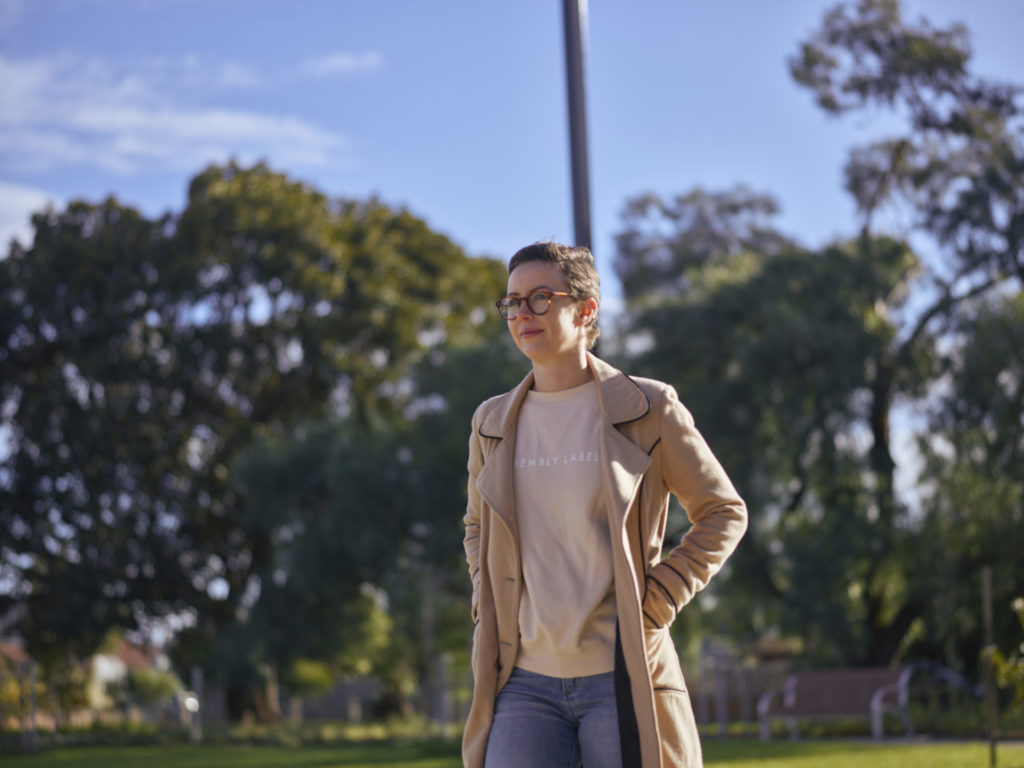When Laura McCambridge discovered a lump in her breast last year, she didn’t waste any time. She headed to her GP’s office the next day to get it checked out.
That moment was the start of a long process for McCambridge, who was soon diagnosed with breast cancer and then underwent months of treatment, including a lumpectomy, four cycles of chemotherapy, a mastectomy and hormone therapy.
McCambridge, who has now finished her active treatment and is feeling well, is only 31 years old. She wants other young women to be aware that breast cancer can strike at any age.
“What people said to me most when I told them what I was going through, was “Oh, but you’re so young!’” she says, speaking to Women’s Agenda ahead of a Q&A event she will speaking at in July with Breast Cancer Trials.
“It’s so important that we all realise anyone can get breast cancer. It can be young women, or even men. There’s no one who is immune.”
When she was diagnosed, she decided to become a participant in the Breast MRI Evaluation Study at Breast Cancer Trials. It’s a study that aims to find out if having an MRI after being diagnosed with breast cancer can help improve treatment plans and outcomes for patients.
“I could feel the lump easily, the doctors could feel the lump, but it didn’t show up on a mammogram because your tissue is a lot denser when you’re younger,” McCambridge explained.
“For me it was really important to have that MRI to be able to see what was going on, and it became an important part of my decision-making.”
McCambridge works as professional researcher at the Florey Institute of Neuroscience and Mental Health, so is very in tune with how valuable clinical trials can be. She also says it gave her a sense of purpose, to know that her participation could potentially improve outcomes for others down the track.
For McCambridge going through treatment, she says she was lucky to have a supportive partner and close friends around her, but she did face a whole range of challenges, like not being able to see her parents who live in New Zealand and contending with travel restrictions due to the pandemic.

She adds that one of the more difficult aspects of being diagnosed with breast cancer so young was the conversations and decisions she had to face regarding her fertility.
“It was weird for someone who really hadn’t thought about having children that much yet, to have to think about things like storing eggs,” she explained.
“They described it to me as an insurance policy, with the hope that once all of this is over, I could conceive naturally. Even just having those conversations is shocking and it is one of the things young women deal with when they receive a cancer diagnosis.”
She adds that losing her hair during chemotherapy treatment was also challenging.
“I’m sure it’s horrific for older women as well, but having your hair fall out when you’re 31 is pretty tough,” she said. “I didn’t think it was going to be as traumatic as it was.”
On reflection, McCambridge feels grateful to have been living in Melbourne when she first felt the lump in her breast. Not long before the pandemic started, she had been travelling in Central America for six months.
“I went to the doctor the day after I felt the lump, but if I had been backpacking in Guatemala, it scares me how different my story could have been.”
Laura McCambridge will be a panel member at an upcoming Q&A with Breast Cancer Trials on 27 July, on the topic of Breast Cancer in Young Women. Moderated by Author and Journalist Annabel Crabb, you can find out more about the Q&A or register to watch the online Q&A here.

